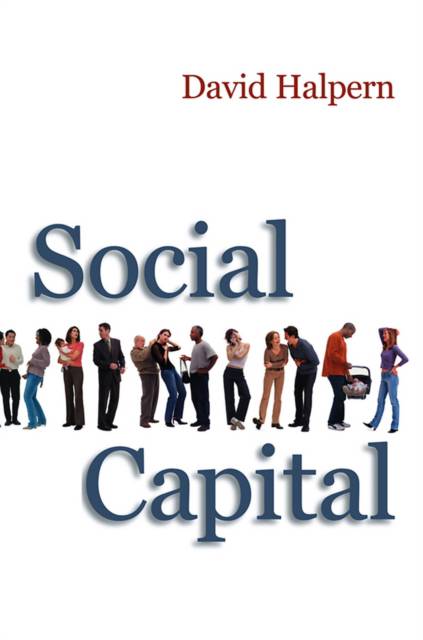
- Retrait gratuit dans votre magasin Club
- 7.000.000 titres dans notre catalogue
- Payer en toute sécurité
- Toujours un magasin près de chez vous
- Retrait gratuit dans votre magasin Club
- 7.000.0000 titres dans notre catalogue
- Payer en toute sécurité
- Toujours un magasin près de chez vous
Description
The concept of 'social capital' is currently the focus of an explosion of interest in the research and policy community. It refers to the social networks, informal structures and norms that facilitate individual and collective action. This explosion of interest is driven by a growing body of evidence that social capital has enormous effects on economic growth, health, crime and even the effectiveness and functioning of governments.
David Halpern provides a guide through the many and sometimes confusing definitions of social capital. The various literatures examining the empirical consequences of social capital are brought together from across academic disciplines to demonstrate a remarkable range of effects. A model is then presented to account for the causal pathways that create social capital, and that lead from social capital to its outcomes. International evidence is used to establish whether social capital is on the decline, and the thorny question of whether social capital can harm or exclude is also examined. Finally, the policy implications are considered, including how social capital can be measured, created and utilized.
Social Capital offers an overview of one of the most important and exciting areas to emerge out of the social sciences in many years. It assumes no previous knowledge of the literature or statistics, and will be of interest to students and researchers in politics, sociology, social administration and social psychology and to the general reader interested in finding out more about how social capital affects all our lives.
David Halpern provides a guide through the many and sometimes confusing definitions of social capital. The various literatures examining the empirical consequences of social capital are brought together from across academic disciplines to demonstrate a remarkable range of effects. A model is then presented to account for the causal pathways that create social capital, and that lead from social capital to its outcomes. International evidence is used to establish whether social capital is on the decline, and the thorny question of whether social capital can harm or exclude is also examined. Finally, the policy implications are considered, including how social capital can be measured, created and utilized.
Social Capital offers an overview of one of the most important and exciting areas to emerge out of the social sciences in many years. It assumes no previous knowledge of the literature or statistics, and will be of interest to students and researchers in politics, sociology, social administration and social psychology and to the general reader interested in finding out more about how social capital affects all our lives.
Spécifications
Parties prenantes
- Auteur(s) :
- Editeur:
Contenu
- Nombre de pages :
- 400
- Langue:
- Anglais
Caractéristiques
- EAN:
- 9780745625485
- Date de parution :
- 10-12-04
- Format:
- Livre broché
- Format numérique:
- Trade paperback (VS)
- Dimensions :
- 152 mm x 229 mm
- Poids :
- 535 g

Les avis
Nous publions uniquement les avis qui respectent les conditions requises. Consultez nos conditions pour les avis.






